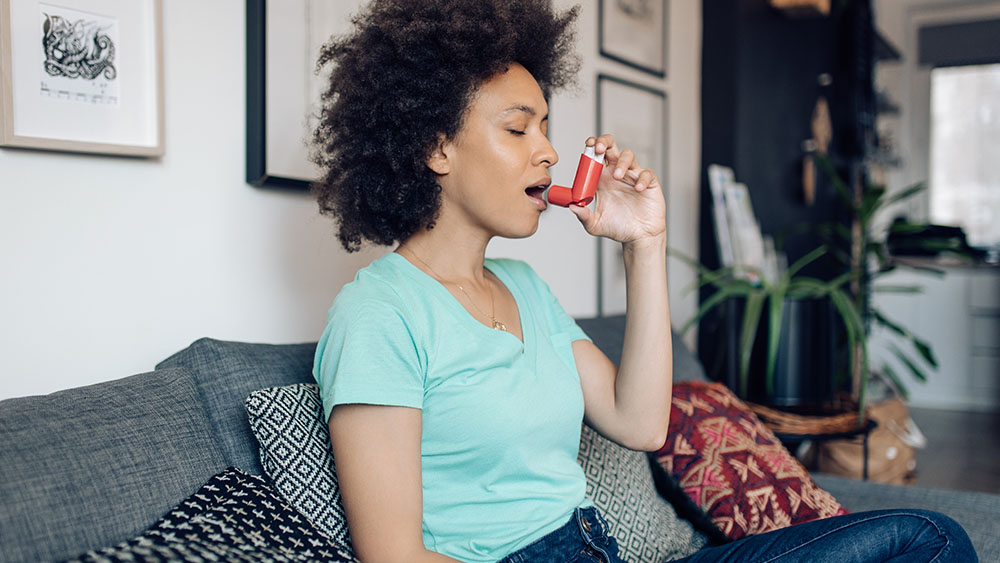
An NIH-supported study is testing existing drugs as potential at-home treatments for COVID-19.

An NIH-supported study is testing existing drugs as potential at-home treatments for COVID-19.
What you need to know
If you’re sick with the flu, you can take medicine to help you get better faster. But if you have a mild case of COVID-19, there’s no medicine you can take at home to keep you from getting sicker. Most authorized medicines are available only in clinics or hospitals or for people at high risk for severe disease. More options are needed to treat COVID-19 at home.
The usual path for developing new medicines can take 10 to 15 years. Drug repurposing — finding new uses for drugs that are already approved for other conditions — is one way to speed up the process. The National Center for Advancing Translational Sciences (NCATS) has supported drug repurposing for the last decade.
Now NCATS is funding a large study of drugs that have been tested in humans and approved by the U.S. Food and Drug Administration (FDA). The study’s goal is to test the effectiveness of these drugs in reducing the duration and severity of symptoms associated with mild to moderate COVID-19.
What are the researchers doing?
Through the Accelerating COVID-19 Therapeutic Interventions and Vaccines (ACTIV) public-private partnership, NIH is supporting studies to identify and develop COVID-19 treatments. One such study, the Phase 3 ACTIV-6 clinical trial, will take place at up to 280 study sites and enroll as many as 15,000 people.
The ACTIV-6 trial focuses on people in minority, rural, and other communities that are highly affected by COVID-19 but lack access to major research centers where large-scale trials usually take place. ACTIV-6 is open to people who are at least 30 years old, have tested positive for COVID-19, and show two or more COVID-19 symptoms.
Three drugs have been selected for testing so far, based on their established safety record and early evidence of potential effectiveness against mild to moderate COVID-19. None of these medicines have been approved by the FDA for the treatment of COVID-19.
-
Fluvoxamine tablets are approved by the FDA to treat depression, anxiety, and obsessive-compulsive disorders.
-
Fluticasone inhalers are approved by the FDA to treat asthma and chronic obstructive pulmonary disease.
-
Ivermectin tablets are approved by the FDA to treat some human parasitic diseases. Even in standard doses, the drug can cause side effects that range from mild to serious, including severe eye problems, liver damage, and seizures. People should not take animal ivermectin products under any circumstances.
Researchers are tracking COVID-19 hospitalizations, deaths, and symptoms. Questionnaires assess factors such as pain, fatigue, and ability to participate in activities.
The ACTIV-6 study should provide solid evidence about whether any of these drugs can be repurposed as a COVID-19 treatment. Other drugs will be added as the study progresses.
Why is this research important?
At-home treatments are a critical need in fighting the COVID-19 pandemic. The ACTIV-6 trial may help fill this need more quickly than developing entirely new treatments.
Where can I go to learn more?
Large Clinical Trial to Study Repurposed Drugs to Treat COVID-19 Symptoms
-
NCATS is overseeing the ACTIV-6 trial.
ACTIV-6: COVID-19 Study of Repurposed Medications
-
If you are at least 30 years old and had a positive COVID-19 test and symptoms for less than a week, you may be eligible to participate in ACTIV-6.
Accelerating COVID-19 Therapeutic Interventions and Vaccines (ACTIV)
-
The ACTIV public-private partnership is prioritizing and speeding development of the most promising treatments and vaccines for COVID-19.
-
NCATS’ program fosters approaches that accelerate the pace at which discoveries are turned into new preventions, treatments, and cures for human diseases.
Sources
National Center for Advancing Translational Sciences. (2019). Transforming Translational Science. Accessed September 28, 2021, from https://ncats.nih.gov/files/NCATS_Factsheet_508.pdf.

News and Stories
Read stories about the efforts underway to prevent, detect, and treat COVID-19 and its effects on our health.
 An official website of the United States government
An official website of the United States government

